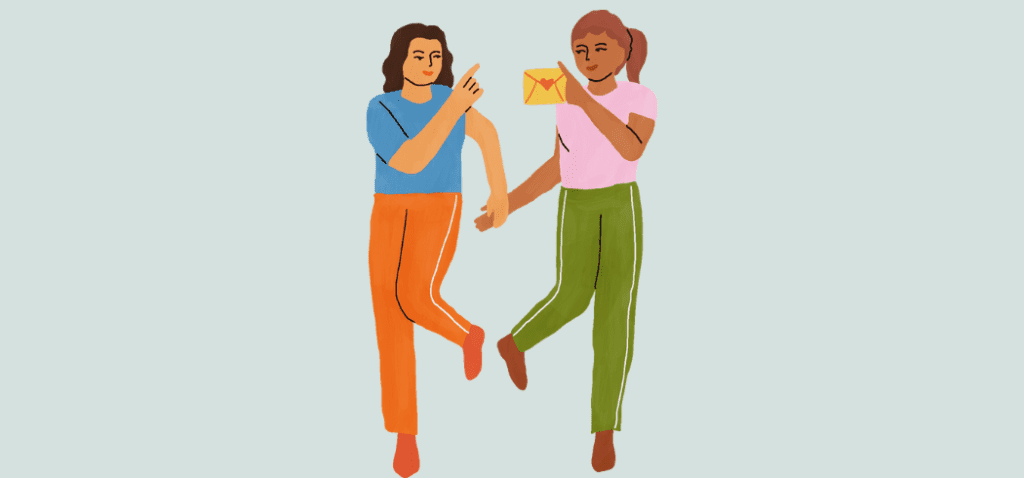Nouns and pronouns have different uses in sentences. These uses can be grouped based on their “cases.”
The objective case has different functions: direct object, indirect object, and object of the preposition. Learn their definitions, examples, and how to use objective case pronouns and nouns below.
What Does Objective Case Mean?
The objective case of a noun or a pronoun always functions as an object of the sentence. That means it can either be a direct object, an indirect object, or the object of a preposition.
Examples:

- Shannon gave Lisa a card.
(“Lisa” is a noun in the objective case because it is the recipient of the verb “gave.” In the same way, “card” is in the objective case because it is the thing being acted on by “gave.”)
- I offered a handshake.
(“Handshake” is an object of the sentence because it is being acted on by the verb “offered.”)
Objective Case and Direct Objects
The direct object is any noun or pronoun that receives the action. Remember that it always follows an action verb rather than a linking verb. Otherwise, it is a subjective complement, which is not in the objective case.
One way to spot the direct object in the sentence is by asking “what” after the verb. For example, in the sentence “she ate cake,” one may ask “ate what?” to identify the direct object.
Examples:
- After hours of contemplating, Manny finally sent the message to Patricia.
(Here, “message” functions as a direct object because it is the object on which “sent” acts.)
- Mila owns the house next door.
(“House” is the recipient of the action verb “owns.”
Objective Case and Indirect Objects
Indirect objects are always in the objective case too. It refers to the noun or pronoun that receives the direct object. A transitive verb affects the indirect object even if it’s not the main object of the sentence.
Examples:

- Sam offered Jonah a drink.
(In this sentence, “Jonah” is the indirect object in the objective case because it receives the direct object “drink.” Note that “drink” is also in the objective case.)
- She gave me my clothes back.
(“Me” is one of the objective case pronouns in English. In this sentence, “me” receives the direct object “clothes.”)
Objective Case and Object of Preposition
An object of the preposition is a noun or pronoun that the preposition references.
Examples:
- There’s a bun in the oven.
(“Oven” is the object of the preposition “in.”)
- Your water jug is on the table.
(“Table” is the object of the preposition “on.”)
Objective Case Pronouns
Pronouns in the objective case are pronouns that function as direct objects, indirect objects, and objects of prepositions. In English, pronouns change in form when they go from nominative to the objective case.
Examples:
- Lisa handed us the trophy.
(“Us” is in the objective case as it functions as an indirect object.)
- We handed Lisa the trophy.
(“We” is in the nominative case as it functions as a subject.)
Pronouns/Objective Case Pronouns List
Here’s a list of the objective case pronouns
- I/me.
- You/you.
- We/us.
- They/them.
- He/him.
- She/her.
- It/it.
Objective Case of They
The objective counterpart of the subject pronoun “they” is “them.”
Example:
- I baked some sugar cookies, and the kids finished them right away.
Objective Case of She
The objective case of the subjective pronoun “she” is “her.”
Example:
- The teacher gave her the highest grade.
Summary of the Objective Case
Now you know that nouns and pronouns in the objective case are defined by their purpose in the sentence. They either function as a direct object, indirect object, or the object of a preposition. Nouns do not change in form when in the objective case, but pronouns do.
Mastering the different cases in the English language will help you become a better writer or speaker. Be sure to check out grammar checkers to help as well.
